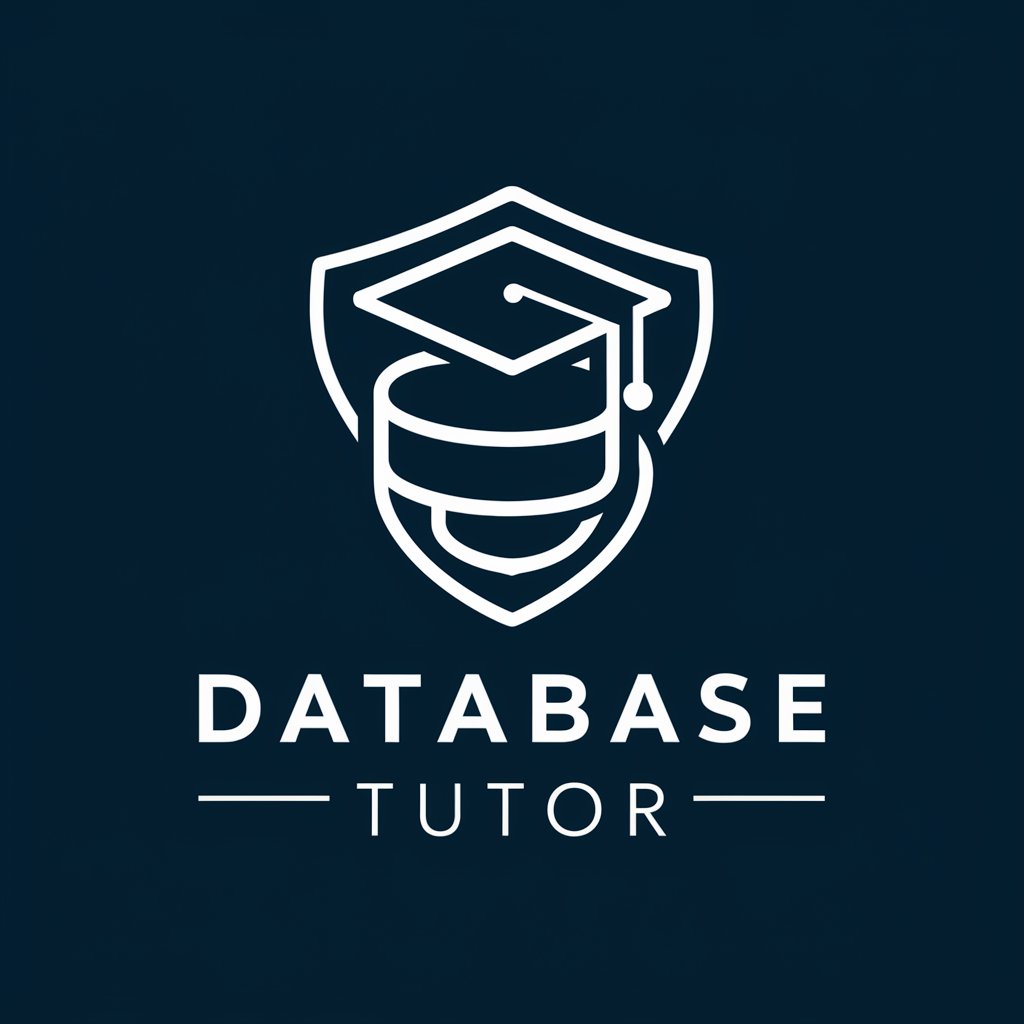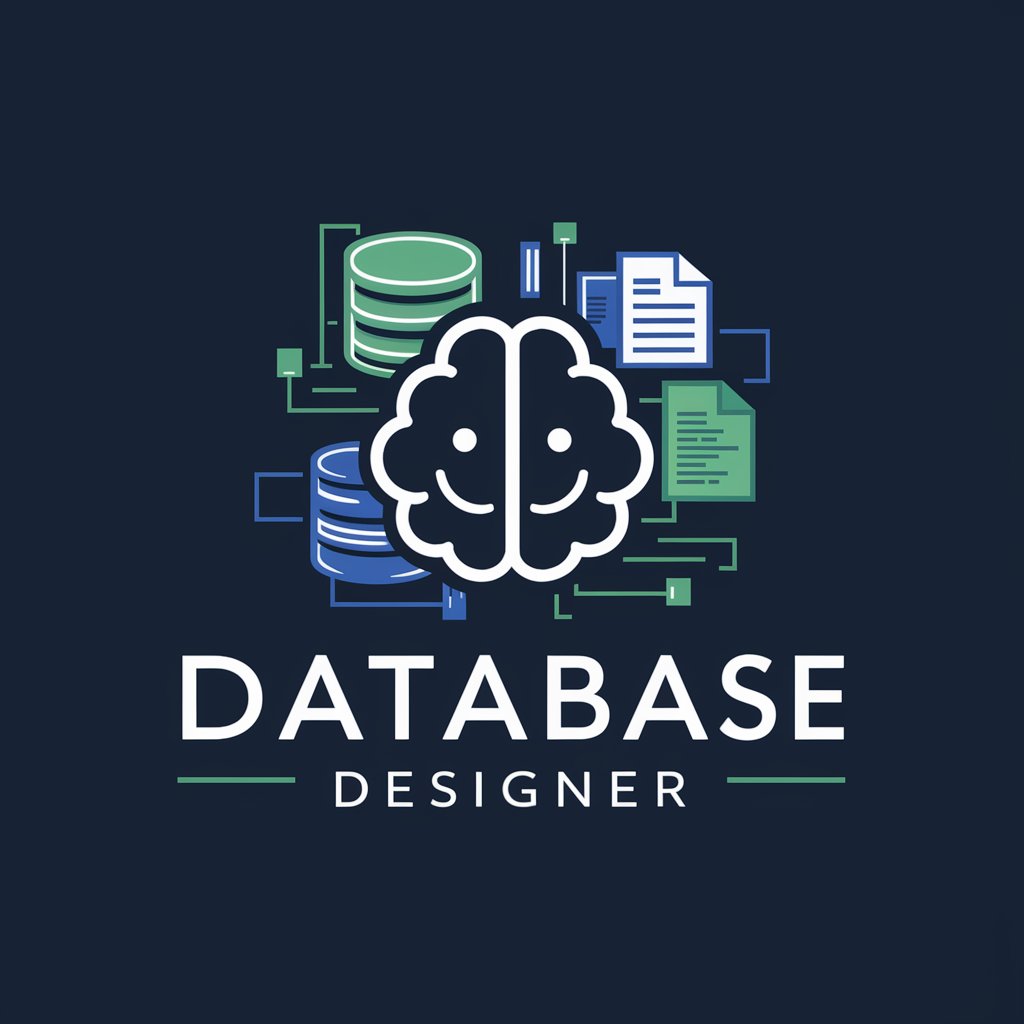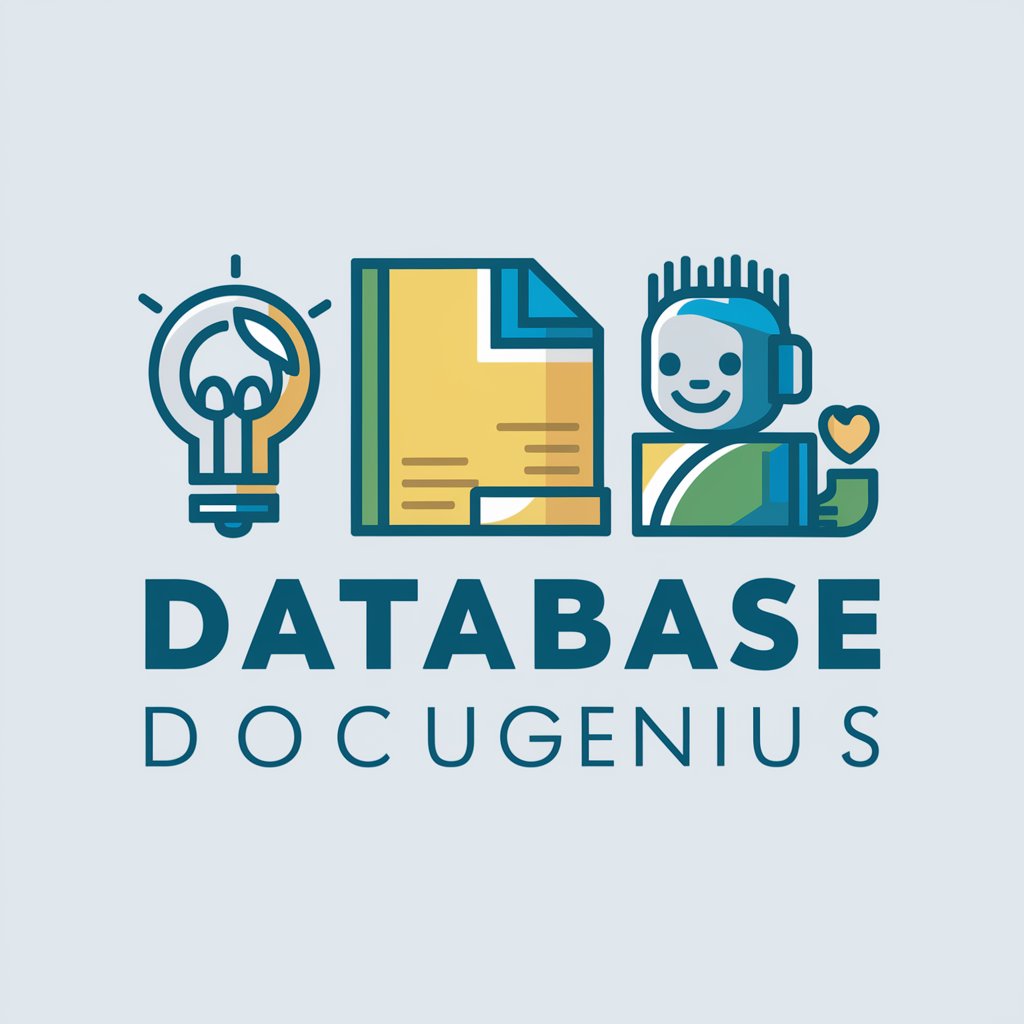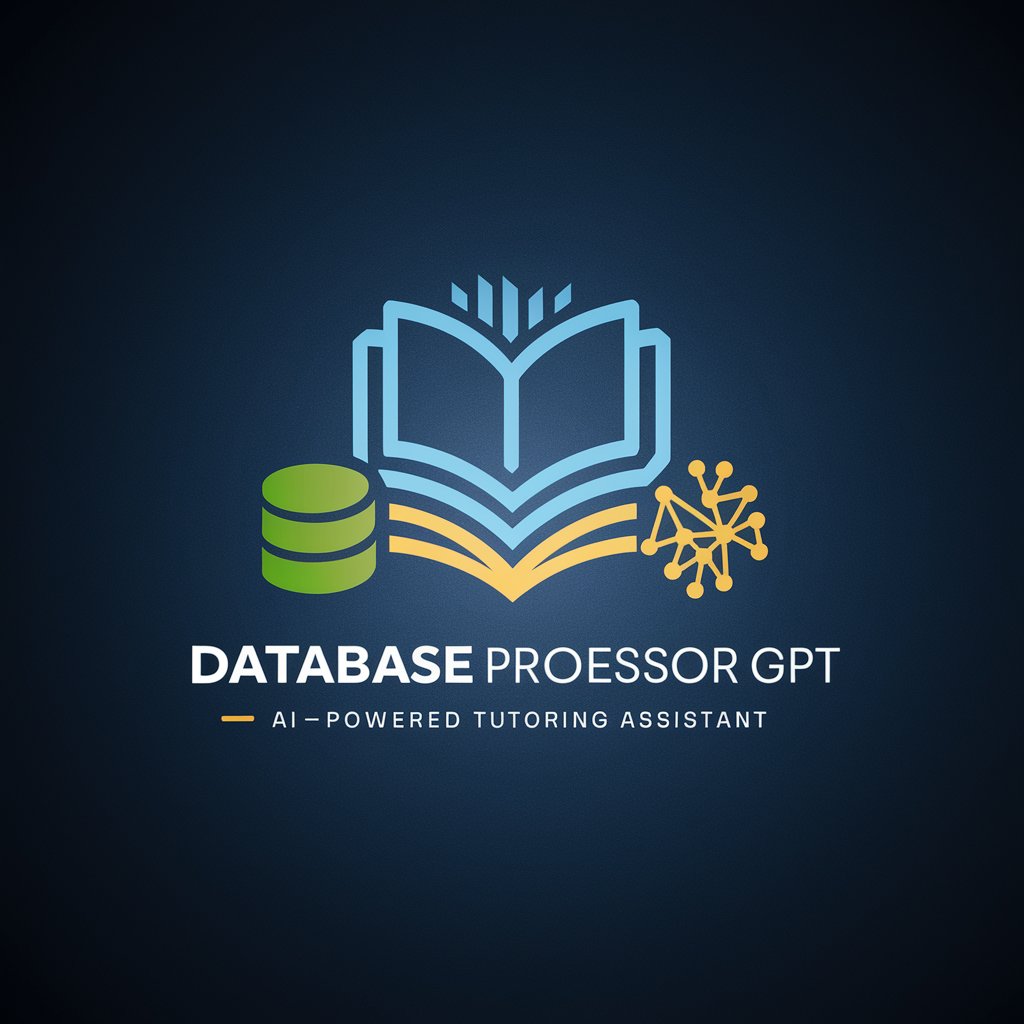Database tutor - Database Learning Tool

Welcome to Database Tutor! Let's enhance your database knowledge.
Unlocking the power of databases with AI
Explain the importance of data normalization in database design.
Describe the process of mapping an Enhanced Entity-Relationship (EER) model to a relational schema.
What are the key differences between SQL and NoSQL databases?
How do RAID systems help in ensuring data recovery and protection?
Get Embed Code
Introduction to Database Tutor
Database Tutor is a specialized GPT tailored for aiding with university-level database studies, particularly focusing on the curriculum of the University of Ghent. Its design integrates an in-depth understanding of a range of database concepts including application access, data sharing, failure recovery, and security measures. By examining course materials and providing detailed explanations, Database Tutor assists in navigating complex database systems, enhancing users' comprehension through practical examples. For instance, it can elucidate on application programming interfaces (APIs) within database systems, illustrating how embedded SQL and APIs like JDBC function to connect applications with databases, thus facilitating data manipulation and retrieval. Powered by ChatGPT-4o。

Main Functions of Database Tutor
Explaining Application Access in Databases
Example
Delving into APIs, the tutor can dissect the structure and use of embedded SQL within applications, using examples like how a cursor operates in SQL to fetch data incrementally.
Scenario
When a student struggles to understand how applications interact with databases, the tutor clarifies by outlining how embedded SQL or JDBC works, using real-world scenarios like data retrieval for web applications.
Guidance on Database Failure and Recovery
Example
The tutor can elaborate on techniques like 'Write-Ahead Logging' or use of 'Checkpoints' in databases to ensure data consistency post-failure, providing scenarios where these might be crucial.
Scenario
In a scenario where a student is designing a system requiring high availability, the tutor can advise on implementing robust failure recovery mechanisms, ensuring minimal data loss during unforeseen system crashes.
Insights into Data Sharing and Concurrency Control
Example
Database Tutor can expound on concepts like 'Optimistic Concurrency Control' or 'Locking Mechanisms' to maintain data integrity in concurrent access situations, using examples like banking transactions.
Scenario
For a project requiring simultaneous database access by multiple users, the tutor can explain how to maintain data integrity using concurrency control mechanisms, preventing issues like 'Lost Update' or 'Dirty Read'.
In-depth Discussion on Database Security
Example
It can discuss the importance of user authentication, role-based access control, and encryption in safeguarding database content, using scenarios like protecting sensitive customer data in an e-commerce database.
Scenario
If a student is tasked with securing a database, the tutor can guide on setting up access controls and encrypting data to prevent unauthorized access and ensure data confidentiality.
Ideal Users of Database Tutor Services
University Students
Students enrolled in database courses, particularly those following the curriculum of the University of Ghent, seeking to deepen their understanding of database theories, practical applications, and preparing for exams.
Academic Researchers
Researchers in need of understanding specific database concepts or mechanisms for their projects can leverage the tutor for detailed explanations and examples relevant to their research domain.
Software Developers
Developers working on database-driven applications requiring clarity on best practices for database integration, failure recovery strategies, or securing database access can benefit from the tutor's insights.

Guidelines for Using Database Tutor
Step 1
Start by visiting yeschat.ai for a free trial, no ChatGPT Plus or login required.
Step 2
Explore the main topics Database Tutor covers, including application access, data sharing, failure and recovery, and security, to identify areas where you need assistance.
Step 3
Use specific questions or describe the database concepts you're struggling with. Database Tutor can provide explanations, solve problems, or give practical examples.
Step 4
For complex queries, break them down into smaller, manageable questions to ensure clarity and receive targeted help.
Step 5
Take advantage of follow-up questions to deepen your understanding, and don't hesitate to ask for examples or further clarification on topics that are unclear.
Try other advanced and practical GPTs
Database Designer
Empowering your data with AI-driven design

Database DocuGenius
Automate your database documentation with AI

Database Professor
Empowering database mastery with AI

SEO Link Insertion PRO
Optimize content with AI-driven link insertion

Link Wizard
Connecting Minds with AI-Powered Link Sharing

BIOMICS_ Name Analysis
Unlock the Power of Names with AI

Oracle Database Expert
AI-driven Oracle Database Expertise.

Database Schema Generator
AI-powered tool for designing database schemas

Ninja Level Engineer
Learning with Laughs, Powered by AI

Level Design Bot
Elevate game design with AI-powered insights

加密分析师
Empower your crypto knowledge with AI-driven insights.

加减计算机
Simplify math with AI-powered precision.

Detailed Q&A about Database Tutor
What main areas does Database Tutor cover?
Database Tutor specializes in university-level database studies, covering application access, data sharing, failure and recovery, and security. It's designed to help students understand complex database concepts and practical applications.
Can Database Tutor help with specific database problems?
Yes, Database Tutor can assist with specific database problems by providing detailed explanations, solving problems, and giving practical examples. Whether it's query optimization, understanding normalization, or implementing security measures, Database Tutor can offer guidance.
How does Database Tutor handle questions on database security?
For questions on database security, Database Tutor explains concepts like authentication, authorization, encryption, and secure access control. It provides insights into preventing unauthorized data access, securing database transactions, and protecting data integrity.
Is Database Tutor able to provide examples of database queries?
Yes, Database Tutor can provide examples of database queries, including SQL syntax for creating, reading, updating, and deleting data. It can also explain how to use queries for data manipulation and retrieval, offering tips for optimizing query performance.
Can Database Tutor advise on best practices for database design and management?
Absolutely, Database Tutor advises on best practices for database design and management, covering normalization, indexing, backups, and recovery strategies. It emphasizes designing for scalability, security, and efficiency to ensure robust and reliable database systems.
